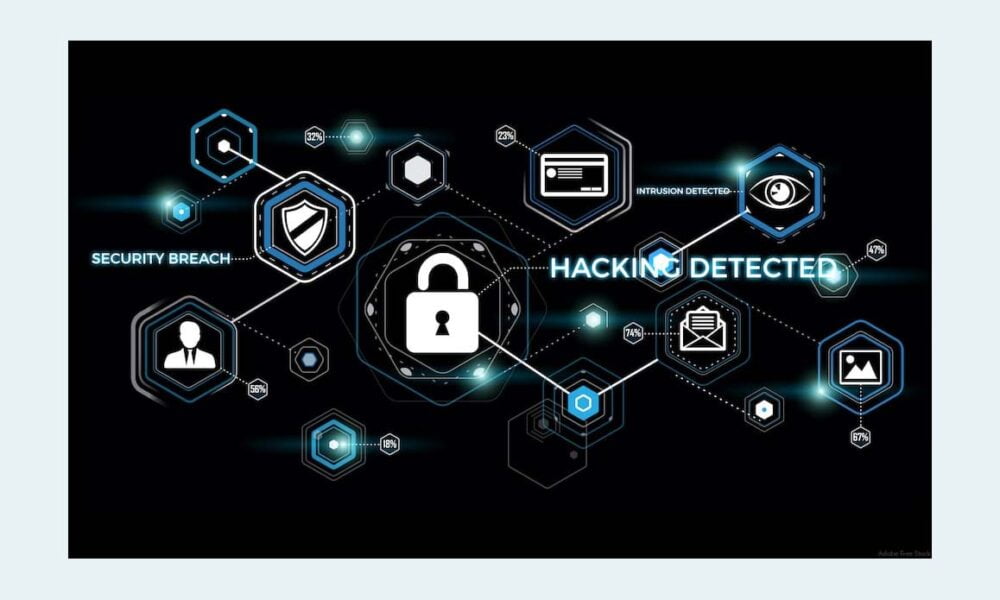Security
5 Things EVERYONE Needs to Know About Cybersecurity

If you think that cybersecurity is something that only people who work in IT need to understand and think about, it’s time to reconsider your stance.
Hackers and cybercriminals are out there in their droves. They want your personal data and ideally your money too. The easiest people for them to target are those who don’t know the basics of keeping themselves safe online. Even better for them are businesses who aren’t taking all the right precautions.
With that in mind, the five things listed below are things that everyone should learn about cybersecurity. Some are slightly more relevant to businesses than individuals, but all are too important to ignore.
1. It’s usually human error that results in a cyber attack
Here’s a scary statistic: nearly 90% of “cyber attacks” are the result of human error.
This comes as a big surprise to many non-technical people who assume things will only go wrong if they wilfully uninstall their antivirus software or if their IT department mess something up. In actual fact, most of the time problems stem from something far more basic, such as someone leaving a device in a public place, or a team member giving away a password to someone who’s tricked them on the phone.
The most important lesson here, if you run a business, is that you must ensure your staff know that they have a key part to play in keeping the company data safe. There’s only so much that software can do.
2. Even the smallest businesses are targets
It’s a huge mistake to assume any business, even a “one man band” is too small to be a target for hackers. In fact, there’s an argument that says such firms are a far softer target because they don’t have the dedicated IT security resources of larger companies.
A recent study demonstrates that over 40% of cyberattacks are aimed specifically at small businesses. And just because the businesses are small, it doesn’t mean the rewards for the hackers are correspondingly tiny. A cybercriminal who finds their way into a company payroll system and redirects the funds could enjoy a very nice “pay day” for themselves!
3. Antivirus is necessary – but it can’t do everything
Modern antivirus and internet security software often comes with such an impressive-sounding feature list that you’d reasonably assume it protects you against every possible online threat.
Unfortunately, this is far from the case. Despite modern techniques such as heuristic analysis, the main way this software works is to recognise viruses and Trojans that it’s already learned about. This means there’s a constant race on between the hackers and the antivirus vendors.
Anyone who says that any antivirus is 100% effective is lying to you.
4. It’s essential to insure against online risks
With the above all in mind, you may be wondering (if you run a business) how you can ever completely protect yourself against the myriad threats that exist in the world of technology.
You can’t; But what you can do is insure against the worst happening by taking out some cybersecurity insurance. With insurance like this in place, you will have some help and financial protection if you become a victim of hackers despite doing all you can to prevent it.
A cyberattack could cause you to lose money, suspend trading, upset your customers or experience a data breach. A good cyber insurance policy will cover you if one of these disasters strikes.
5. No protection measure is completely effective
We’ve already touched on this under antivirus, but it’s worth emphasising that it applies to other measures you can take to prevent yourself against online threats.
For example, if you use a modern email program like Microsoft Outlook, you may assume that with “Junk Email” and “Clutter” folders, hackers would never manage to get a phishing email through to you that attempts to rob you of your passwords and personal details.
They can (sometimes) and they do. Just as antivirus software cannot know about a virus that a hacker has only just created, a junk mail filter cannot always be expected to detect a carefully crafted phishing email. These preventative measures can help, but they can’t replace the need for human care and attention.
Hackers will always be there. The rewards of their criminality are too great for them to give up. However, a little awareness of the points above can make their lives an awful lot harder.









